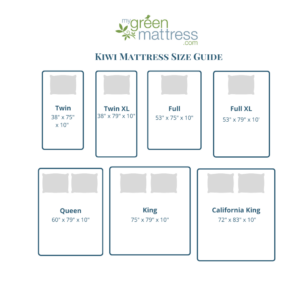When you think of the word ‘fitness’, what is the first thing that comes to mind? If you’re like most people, you probably said diet or exercise. While those are both essential for health and fitness, there is another key component that doesn’t get nearly as much attention as it should – sleep.
If your goal is to tone or gain muscle, then you may be more concerned about the time you spend in the gym than you are about the time you spend in bed. You probably know already how important sleep is for your general health; however, if strength-training is your focus, a good night’s rest may be more integral to reaching your fitness goals than what you realize.
First, let’s take a look at how muscles grow. An increase in muscle size occurs through a process known as muscle hypertrophy. Muscle hypertrophy begins when muscle fibers become damaged through force and exertion (such as lifting weights). When the body is resting, specialized cells begin repairing the damaged muscle fibers fusing them together and increasing their size. Muscles become larger only through this repeated process of damage and recovery. While pumping iron may feel like the most productive aspect of your fitness regime, your muscle growth isn’t happening while you are working out; it’s happening while you rest.
Sleep is one of the most essential tools for increasing muscle size and strength. While we sleep, our bodies produce HGH – or Human Growth Hormone. As the name implies, this hormone is essential for areas of growth throughout the human body, and that of course includes muscle growth. As much as seventy-five percent of the body’s HGH is produced during sleep. This is why young children need significantly more sleep than adults, as their bodies are still growing and need to produce HGH in higher levels.
Another hormone produced by the body during sleep is Prolactin. Prolactin is an anti-inflammatory, and is important for the repair and recovery of your muscles.
Not only will failing to get enough sleep rob your body of these essential hormones and deter muscle growth – according to a 2011 study , lack of sleep can actually decrease your muscle mass. Subjects of the study who slept for longer periods of time saw an increase in muscle, and a decrease in body fat; in the subjects who slept for shorter periods, the opposite occurred. You can have proper nutrition, a great workout regime, and a personal trainer, but without sleep you won’t see the results you want.
To ensure you get the right amount and quality of sleep, you may need to change some of your sleeping habits. Here are a few tips to help you achieve restorative sleep after your workouts:
- Avoid high intensity workouts just before bed. Working out too close to your bedtime will release hormones and endorphins that will make you feel more alert and energetic – and may disrupt your sleep schedule.
- Avoid caffeine, sugar, and alcohol when you’re getting ready to go to sleep. These and other stimulants can make falling asleep more difficult.
- Eat protein-rich foods in the evening to support muscle growth and recovery while you rest.
Along with following these tips, make sure you’re sleeping on the right type of mattress and getting the proper support. Just as sleep is often overlooked as an important factor in fitness, a good mattress is sometimes the last thing people think about when it comes to getting a good night’s rest. If you are sleeping on an old or uncomfortable mattress, you’ll have a harder time falling and staying asleep.
If you are in the market for a quality organic mattress, visit our website to check out our healthy and affordable options.









